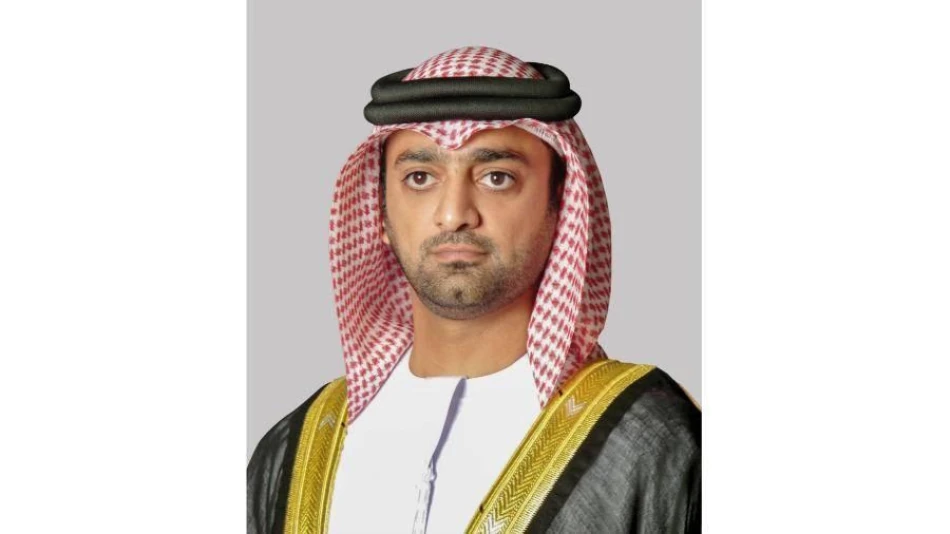
Emirati Leader Highlights Education and Research as Pillars of Progress
UAE's Harvard Investment Strategy: How Elite Education Fuels National Competitiveness
The UAE's systematic investment in sending nationals to top-tier Western universities like Harvard represents more than ceremonial achievement—it's a calculated strategy to build human capital that can compete globally while strengthening the nation's knowledge economy. The recent recognition of an Emirati graduate from Harvard Kennedy School highlights how Gulf states are leveraging elite education as a cornerstone of their post-oil economic transformation.
Strategic Human Capital Development in Action
Sheikh Ammar bin Humaid Al Nuaimi, Crown Prince of Ajman and Chairman of the Executive Council, recently received Mahra Hussein Mohammed Miftah Al Shamsi following her completion of a Master's degree in Government Administration from Harvard Kennedy School for 2024-2025. The Crown Prince emphasized that the UAE's regional and international achievements stem directly from leadership's unwavering belief that education and scientific research form the foundation of development.
This approach reflects a broader Gulf strategy where governments systematically sponsor citizens for advanced degrees at institutions like Harvard, MIT, and Stanford, then integrate these graduates into key government and private sector positions.
The Economics Behind Elite Education Investment
Return on Educational Investment
The UAE's commitment to funding overseas education at premium institutions represents a significant financial outlay—Harvard Kennedy School's Master's programs cost approximately $120,000 annually including living expenses. However, this investment generates substantial returns through enhanced institutional capacity and international networks that benefit the broader economy.
Countries like Singapore and South Korea have demonstrated similar models, where government-sponsored education abroad created the intellectual infrastructure for rapid economic development. Singapore's scholarship programs, initiated in the 1960s, directly contributed to its transformation into a global financial hub.
Knowledge Transfer and Innovation
Graduates from elite Western institutions bring more than technical knowledge—they return with global perspectives, international networks, and exposure to cutting-edge research methodologies. This knowledge transfer accelerates domestic innovation and helps UAE institutions adopt international best practices more rapidly.
Regional Competition for Talent
The UAE's emphasis on elite education occurs within intense regional competition for human capital. Saudi Arabia's Vision 2030 includes massive scholarship programs, while Qatar has established satellite campuses of American universities domestically. The UAE's approach of combining overseas education with strong reintegration incentives has proven particularly effective at retaining talent.
Unlike some countries that experience significant brain drain after funding overseas education, the UAE's robust job market and career advancement opportunities encourage graduates to return and contribute to national development.
Building Institutional Credibility
Having nationals educated at globally recognized institutions enhances the UAE's soft power and institutional credibility. When UAE officials negotiate international agreements or represent the country in global forums, their educational credentials from Harvard, Oxford, or other prestigious universities immediately establish credibility with international counterparts.
This credibility translates into tangible economic benefits through improved credit ratings, increased foreign investment confidence, and enhanced diplomatic relationships that facilitate trade and investment flows.
Long-term Strategic Implications
The Crown Prince's emphasis on continuous learning and boundless pursuit of knowledge reflects understanding that the UAE's competitive advantage increasingly depends on intellectual capital rather than natural resources. As global economies become more knowledge-intensive, countries with superior human capital development strategies will maintain stronger competitive positions.
The UAE's approach suggests confidence that investments in elite education today will generate returns through enhanced government effectiveness, private sector innovation, and overall economic competitiveness for decades to come. This strategy positions the UAE not just as a regional hub, but as a knowledge economy capable of competing globally across multiple sectors.
Most Viewed News

 Omar Rahman
Omar Rahman






